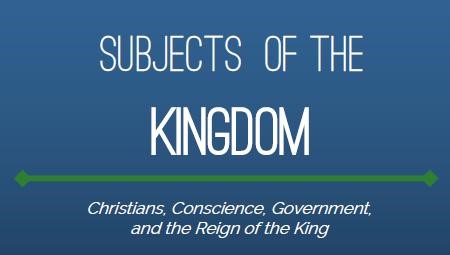It’s difficult to keep oneself from the influences of Christian nationalism. The influence of its verbiage and concepts seem to pop up everywhere within Christian organizations —including “Bible” classes, prayer requests, and casual conversation. Even marginal Christians and non-Christians often assume the conjoining of Christian faith/practice, on the one hand, and (particularly American) nationalism, on the other.
It’s a lonely along the road that travels in a different direction, but I was enthused when I came across the statement below.

Some months ago, a former colleague had shared this on Facebook, but her own comments were more compelling to me, actually. As I began to read the document itself—a sort of petition—I knew I would not be signing it. Not that I ever jump on bandwagons—not even those I tend to believe in—but, as I read it, my excitement waned, and I began to mark it up with thoughts and questions.
For starters, the expressed concern is quite dual: democracy and faith in Jesus are given equal footing, both at the beginning and end of this intentionally crafted statement. It’s true that melding Christ and country will tend to lead to compromise both areas, but my concern is almost entirely on the side of Kurios Jesus. I do find agreement with many of the the points; overall, though, this relatively brief statement doesn’t highlight enough of the issue with Christian nationalism. It does not decry the problem with dual allegiance, and if a philosophy suggests equal interest in human politics and the reign of God, it’s simply not something I’ll affirm.
An unrelated Christian institution has lately asserted itself as a force to “transform culture in America”—employing, for one thing, a “constitutional freedom” think tank. While I cannot determine with any precision the nature of the goal(s) behind this effort, I’m concerned by it. I’m concerned with any mixing of the purportedly Christian with the unapologetically political.
The mere notion of Christian involvement in political thought and political leadership/activity in the U.S. is not necessarily wrong-headed—truly, many good and decent people find such involvement imperative, and few ever seem to consider alternate ways of being involved in this world.¹ Yet I continue to find intrinsically suspect any political aspirations and official involvement among Christians. When one desires to do good, the methods that immediately present themselves view are political, but it’s no good for a Christian to count on political clout and a belief in political enterprises as savior.² Moreover, beyond the philosophical, I’ve witnessed first-hand the deterioration, and even corruption, of Christian values that can come (not always, of course) with politics on more than one level.
Surely Christian nationalism is a false amalgamation, but the matter mustn’t end with that realization. We need to keep thinking. I have never spoken with, or read the writing of, a single person with whom I completely agree on every point in this arena, but it is essential that the thoughtful subject of the King of Kings (1) ponder and (2) act—being involved in the world, while giving allegiance only to the King and not the nation-state. I would recommend for consideration the writings of such authors as Richard Hughes, Lee C. Camp, Gregory Boyd, Scot McKnight, and John Howard Yoder.
¹A chapter in my book Subjects of the Kingdom (“Christian Witness: Engaging as Pilgrims”) attempts to deal honestly with the idea of how to engage. I affirm this statement:
“Disciples are called to be peacemakers. This, however, does not necessarily mean passive disengagement from the world around us. Our example is our Father who loved the world and gave His Son for it. This is radical engagement….” – John Mark Hicks and Bobby Valentine, Kingdom Come: Embracing the Spiritual Legacy of David Lipscomb and James Harding, 159.
² Further on this point, I’ll share something I’ve previously asserted: “Few believers seem to operate on the basis of a timeless, nonphysical reign of God. They might sincerely trust in an eternal God, but their actions seem to value the physical, the geopolitical, the earthly things that won’t last too long. They . . . live as though material and geopolitical matters are both the means and the end.” – Brian Casey, “The Kingdom is Eternal (yet it “works” within time),” 4/15/21
